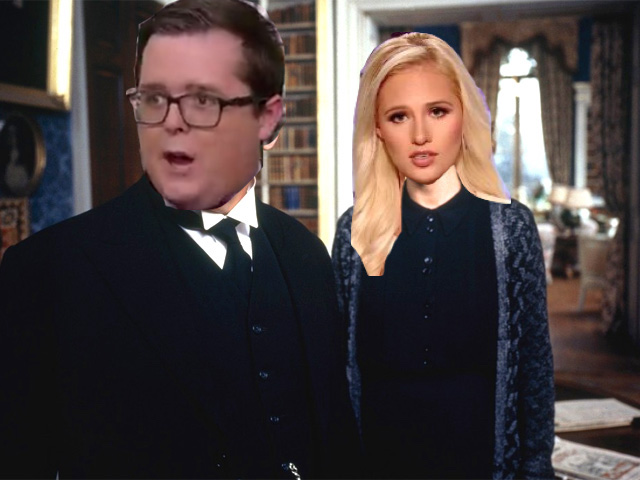All The Parts Of 'The Remains of the Day' Where Mr. Stevens Sounds Like A Right-Wing Pundit
It’s funny because they’re butlers for the Kochs.

Kazuo Ishiguro won the Nobel Prize in Literature today. That’s a great excuse to read or reread his novels, or, if you’re lazy and internet-addicted like me, an even better excuse to read the best blog of the millennium—Jim Windolf’s imagining of Mike Francesa appraising Ishiguro’s career in 2015. If you have even a passing familiarity with Francesa or Ishiguro, or even sports talk radio and books in general, you will not regret clicking on that link.
The connection between Francesa and Ishiguro goes beyond Windolf’s comic genius. The narrator and main character of Ishiguro’s 1989 The Remains of the Day—played by Anthony Hopkins in the 1993 movie adaptation—thinks exactly like the baboons who populate the semipermeable membrane between sports radio and television and conservative punditry.
And why wouldn’t he? Much like the constellation of personalities that make up the sports and right-wing media, Stevens thinks that he’s defending lost honor and rowing against the shitty tide of history. Conservative publications like Breitbart and the Federalist tend to be funded by mega-rich industrialists or secret Nazis, and in The Remains of the Day, Stevens does the literal bidding of both. Stevens believes that his masters are benevolent, and that helping them fulfill their mission—through his butlering—is the most honorable thing in the world. Tomi Lahren and friends are barely removed from being literal butlers for the Kochs and Mercers; the only difference is that Ishiguro imbues Stevens with more pathos than they’ve ever shown. At least four times in The Remains of the Day, an English butler in 1956 sounds exactly like a conservative pundit would in 2017.
The passage:
“Now I do not doubt that Mr. Neighbours had good organization skills; he did, I understand, mastermind a number of large occasions with conspicuous style. But at no stage did he ever approach the status of a great butler. I could have told you this at the height of his reputation, just as I could have predicted his downfall…”
The pundit:
Much of the narrator’s interior monologue is concerned what what makes a butler “great” and who the truly great butlers are, the classic and insufferable framing of many sports debates. This particular passage is the raw id of Skip Bayless: proclaiming that the beloved superstar is a fraud, specifically dismissing someone successful as simply flashy, and making sure to point out that he had called it all along.![]() The passage:
The passage:
“It is sometimes said that butlers only truly exist in England. Other countries…have only manservants. I tend to believe this is true. Continentals are unable to be butlers because they are as a breed incapable of the emotional restraint which only the English race are capable of. Continentals—and by and large the Celts, as you will no doubt agree—are as a rule unable to control themselves in moments of strong emotion, and are thus unable to maintain a professional demeanour other than in the least challenging of situations.”
The pundit:
The hacky scientific racism could be any buildup to a major fight, but the obsession with Maintaining Emotional Control is all Mike Cernovich.![]() The passage:
The passage:
Quoting the whole thing would be tedious, but Stevens gets mad at the housekeeper for calling his father “William” instead of “Mr. Stevens” even though she technically ranks above him on the household staff.
The pundits:
Jay Nordlinger and William F. Buckley of the National Review. Buckley, the founder of the far-right rag, claimed 40 years ago that calling people by their first name without their consent represented an “obsessive egalitarian familiarity which approaches a raid on one’s privacy.”![]() The passage (technically Lord Darlington here):
The passage (technically Lord Darlington here):
“Frenchmen. Really, I mean to say, Stevens, Frenchmen…and to think we have to be seen by the world to be arm in arm with them. One wishes for a good bath at the mere reminder…Last time I was in Berlin, Stevens, Baron Overath, old friend of my father, came up and said: ‘Why do you do this to us? Don’t you see we can’t go on like this?’ I was jolly well tempted to tell him it’s those wretched Frenchmen. It’s not the English way of carrying on, I wanted to say. But I suppose one can’t do things like that. Mustn’t speak ill of our dear allies.”
The pundit:
This is the exact form—“I’m not saying it, wink, wink, and it sure would be gross if I did!”—that Donald Trump uses all the time, most famously when he used it to call Ted Cruz a pussy.
